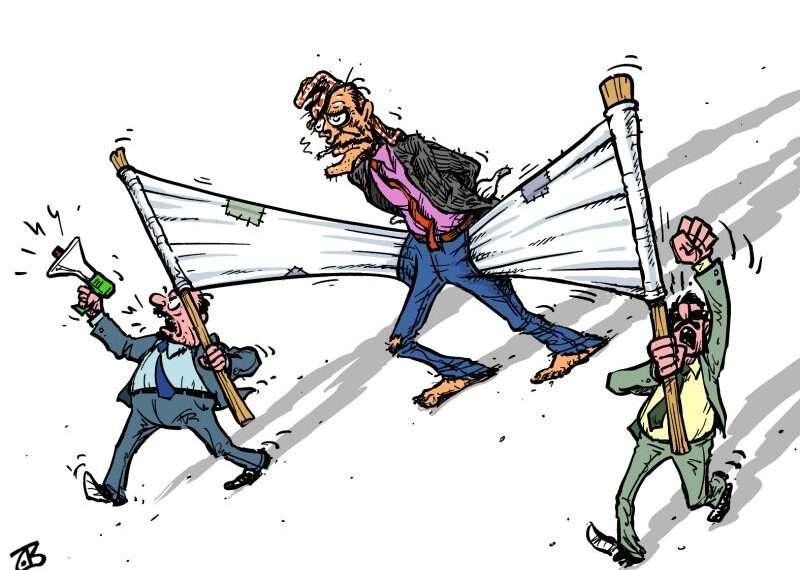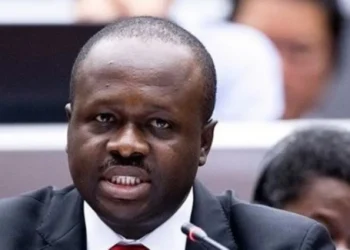In a world where international accolades often measure economic success, the International Monetary Fund’s relentless pursuit to impress an ambiguous audience raises eyebrows. As nations grapple with real-world hardships, it’s time to question whose interests the IMF truly serves.
In a recent revelation during the IMF/World Bank spring meetings in Washington DC, Stéphane Roudet, the Mission Chief for Ghana, boldly declared, “Ghana is overperforming under the IMF program and that is good.”
“Ghana’s program is delivering on its promises and in fact, it is over-delivering.”
He said the development would prompt the IMF to even review the growth forecast for Ghana for 2024, saying inflation ended last year better than what the IMF had projected.
“We are also surprised as to how growth has performed under Ghana’s program” the Mission Chief added.
“The required revenue is being raised, the Bank of Ghana is also doing its part to ensure that, inflation is brought under control and that is good for the program.”
Stéphane Roudet
The Mission Chief for Ghana also added that “the external position has also been doing very well; fiscal position is also adjusting in line with the program working and delivering on its promises.”
He however stressed that for confidence in Ghana’s economy to be fully restored and seen through the lens of various actors such as rating agencies and development partners, it would depend on the full implementation of the IMF program going forward.

The Economy In The Pocket
While Roudet may just be hawkish to boost investor confidence in the Ghanaian economy which is in tatters, the reality for the average Ghanaian is quite the opposite.
For example, recent data from the Ghana Statistical Service paints a grim picture, with CPI inflation soaring to a staggering 25.8% and Producer Price Inflation hovering around 16.5%.
These figures translate into tangible hardships for ordinary Ghanaians, who are facing escalating prices for basic necessities.
For the average Ghanaian, the cost of living is spiraling out of control. A simple pleasure like enjoying a ball of kenkey now comes at a hefty price tag of GHS 5, while a small fish sets one back GHS 7.
Also, the price of a liter of petrol edging closer to the GHS 15 mark. And if it should increase further it could trigger a drastic rise in the cost of transportation which is a major driver of overall inflation.
Such inflationary pressures, particularly in transportation costs add to the woes of a glaring disconnect between economic performance on paper and the living experiences of Ghanaians.
Despite any macroeconomic gains, incomes have failed to keep pace with the rising cost of living, leaving many Ghanaians struggling to make ends meet.
Furthermore, the specter of external debt looms large on Ghana’s horizon. After a temporary reprieve, the country will soon resume servicing its debts, placing additional strain on government finances and exacerbating pressure on the exchange rate.
The implications for ordinary citizens are dire, as any further depreciation of the local currency will only serve to erode purchasing power and deepen the economic hardship faced by many.
In light of these stark realities, it begs the question: what does it truly mean for Ghana to be overperforming under the IMF program? While such rhetoric may improve Ghana’s image in the face of international investors, it does little to address the pressing needs of the Ghanaian people.
The IMF’s assessment of Ghana’s overperformance must be met with a healthy dose of skepticism, as the true measure of success lies not in abstract economic indicators, but in the concrete realities faced by the people of Ghana.
READ ALSO: Colonna Reasserts UNRWA’s Indispensable Role In Gaza



















